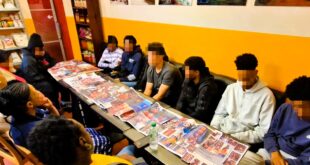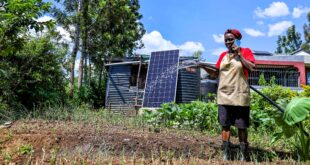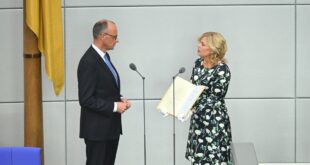In a remarkable, if coincidental, series of events across Kenya last weekend, nine people were beheaded by suspected al-Shabab militants, the internal security minister suddenly died, the main opposition leader was hospitalised with food poisoning, and the president appeared to accuse the judiciary of trying to delay general elections scheduled to take place in less than a month.
The events underscore the immense challenges Kenya faces in combating extremism and maintaining national security, as well in ensuring the elections – in which voters will choose a president, his deputy, members of parliament and of local government bodies – will be free, fair, credible, and peaceful.
On Friday night (7 July), nine people were beheaded in Jima village in the coastal county of Lamu, in the latest of a slew of attacks allegedly carried out by al-Shabab. In response, the government evacuated local residents and imposed a 90-day curfew in parts of the county, as well as in the two neighbouring counties of Garissa and Tana River.
Four officers had already been killed by al-Shabab on Wednesday two kilometres away, at the Pandaguo police post. The previous week, on 27 June, in Lamu East constituency, eight people – four police officers, and four students – were killed when a police vehicle ran over an explosive device suspected to have been planted by al-Shabab.
Death of a minister
The curfew was imposed by the new interim secretary [minister] for the internal security and coordination, Fred Matiang’i, on his first full day on the job. On Saturday morning, his predecessor, Joseph Nkaissery, was pronounced dead after collapsing at his home and being taken to hospital. An investigation into his death has been opened. Leaders from all parties mourned the loss.
Nkaissery, the most senior security official in government, was a highly divisive and powerful figure in Kenyan politics. He had served as a general in the armed forces in the 1970s, before joining politics, and led Kenya’s counter-terrorism efforts as minister.
He was in charge of the response to the Garissa University attack in which 148 students were killed in April 2015 and admitted that vital intelligence was ignored and that various security forces failed to coordinate effectively.
Nkaissery also stood accused of failing to properly respond to allegations of serious misconduct and human rights violations by police forces during counter-terrorism operations. He threatened to arrest journalists who reported the alleged extra-judicial killing of a female terrorism suspect in December 2015.

The late minister was also a major force in government efforts to repatriate hundreds of thousands of Somali refugees living in Kenya’s Dadaab camps, in some cases for decades, despite continuing insecurity in Somalia.
His death is a major loss to President Uhuru Kenyatta – who is running for re-election – and creates a vacuum in national security as well as within politics among the Maasai community. He was the most senior Maasai in government, and a leader within the community. The day before his death he had been on the campaign trail with Kenyatta.
Kenyatta attacks judiciary
Amid intense campaigning by Kenya’s two main political groupings, hostile rhetoric and accusations of unfairness by Kenyatta and opposition leader Raila Odinga are intensifying.
The latest opinion polls released last week showed Kenyatta maintaining a five-point lead over Odinga. But this gap has narrowed in recent months – not long ago it stood at 30 points.
The president and the chief justice traded barbs on Sunday over a recent case relating to ballot papers for the presidential election.
Kenya reconciliation faces major election test
Two days earlier, the High Court nullified the tender for printing the papers, which had been awarded by direct procurement to Dubai-based Al- Ghurair Printing & Publishing, to which the opposition says Kenyatta has ties.
The judges ordered the Independent Electoral and Boundaries Commission (IEBC) to restart the tender process on the grounds that not all presidential candidates had been adequately consulted on the first one.
In reaction, Kenyatta stated at a rally on Sunday: “I want to tell those in the courts that because we have respected you for a long time we are not fools. We cannot accept the courts to be used by those not interested in the elections to frustrate [the] IEBC.”
The decision may make it difficult for voting papers to be printed in time for the election on 8 August.
Deputy President William Ruto appeared to accuse Chief Justice David Maraga of meddling with the ruling, which the government and the IEBC say they will appeal.
In response, Marage tweeted: “We in the judiciary are open to constructive engagement, including being criticised.”
“However, when political leaders cast aspersions on the administration of justice based on a misinterpretation of my statements, it has the potential to impair public confidence in our courts.”
Lack of confidence in the ability of Kenya’s courts to address perceived election shenanigans was a key reason the country descended into widespread violence in the wake of a disputed presidential poll in December 2007. Some 1,200 people were killed in the clashes and around 600,000 fled their homes.
In the run-up to next month’s polls, Kenyatta and Odinga have traded accusations of having instigated the violence a decade ago, which saw Kenyatta and Ruto charged at the International Criminal Court in The Hague, although both cases were eventually dropped.
On 2 July, the head of the European Union mission observing Kenya’s elections, Marietje Schaake, told reporters, “it is no secret there are concerns about the possible outbreak of violence. This is not inevitable and it is clear that this would create a situation where everyone loses.”
Also on 2 July, Human Rights Watch called on Kenyan police to investigate reports of threats and intimidation in Naivasha, a town that was one of the flashpoints of the violence in 2007/8.
On Sunday night, Odinga was hospitalised in Mombasa for a few hours as a result of food poisoning.
A video of the 72-year old opposition leader on a gurney circulated across local media that evening, causing widespread alarm among his supporters. But he was quick to reassure voters that he was healthy and “fit as a fiddle”.
“It was a case of food poisoning, which is not the same thing as being poisoned,” he added. “I know many Kenyans encounter this problem from time to time. It can cause quite a scare and indeed it did to me.”
Anjli Parrin/IRIN
 THE AFRICAN COURIER. Reporting Africa and its Diaspora! The African Courier is an international magazine published in Germany to report on Africa and the Diaspora African experience. The first issue of the bimonthly magazine appeared on the newsstands on 15 February 1998. The African Courier is a communication forum for European-African political, economic and cultural exchanges, and a voice for Africa in Europe.
THE AFRICAN COURIER. Reporting Africa and its Diaspora! The African Courier is an international magazine published in Germany to report on Africa and the Diaspora African experience. The first issue of the bimonthly magazine appeared on the newsstands on 15 February 1998. The African Courier is a communication forum for European-African political, economic and cultural exchanges, and a voice for Africa in Europe.

































